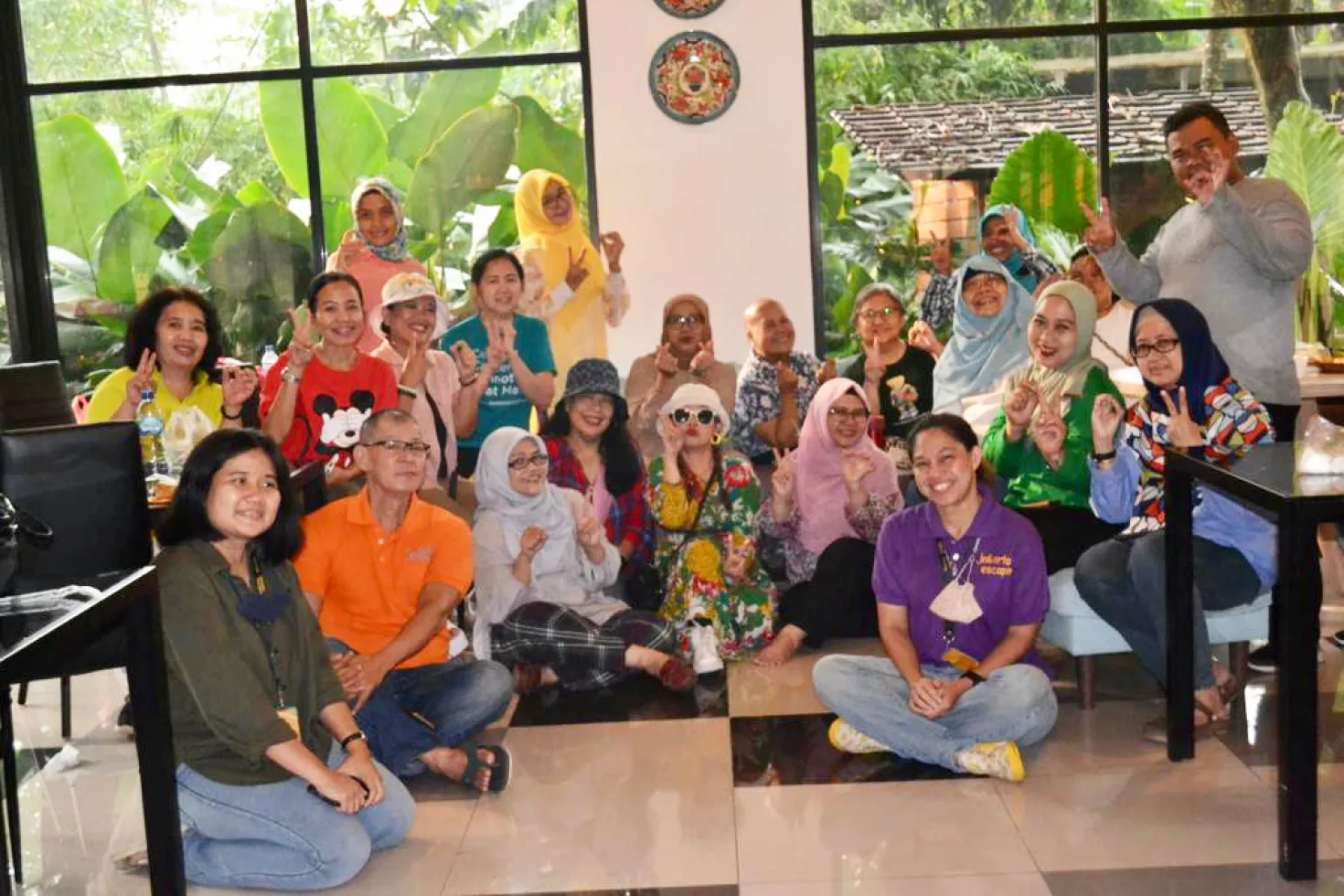Engagement of people with a lived experience
The lived experience of all those affected by cancer, achieved through the meaningful engagement of patients, survivors, caregivers, or families, is a critical component of all efforts toward the quality prevention and control of cancer.

In accordance with the right to health, which includes the right of all individuals and communities to “active and informed participation on issues relating to their health”[1], the participation of patients in “all health-related decision-making at the community, national and international levels”[2] is increasingly recognised around the world. The engagement of patients, survivors and caregivers in decisions that concern them is qualified as an indicator of 'health democracy'.
UICC podcast on patient engagement
What does it mean?
From the adage “nothing about us without us”, patient engagement has led to the development of 'patient as partner' as well as 'patient expert' approaches. All along the cancer prevention and control continuum, people-centred approaches are key to ensuring the legitimacy, relevance and quality of all cancer policies. People with a lived cancer experience have a right to meaningfully take part in all policies and decisions that are in their interest.
The pivotal role in institutions and policies of cancer patient organisations as a vehicle for the sustainable representation of the patient voice and the sharing of experiential knowledge has been also recognised in the literature [3]. Participatory approaches, with direct engagement of such organisations in policies and particularly in the development and implementation of national cancer control plans, are key levers for implementing the right to health in cancer control decision-making processes. In this sense, the participation of cancer patient organisations is a key requirement of “health democracy”.[4]

What can be done
In the field of non-communicable diseases (NCD), the NCD Alliance led a campaign for the 'Global Charter on Meaningful Involvement of People Living with NCDs' and the WHO has developed a Framework for meaningful engagement of people living with noncommunicable diseases, and mental health and neurological conditions launched in May 2023.
However, much still has to be done globally to ensure the institutionalisation of the meaningful engagement of people living with cancer in all policies.
UICC's work
About 40% of UICC member organisations are patient support groups. This represents almost 500 organisations worldwide. In Asia-Pacific and Latin America, patient groups represent more than 50% of UICC’s members.
The membership also includes global patient coalitions, which encompass both non-cancer-specific organisations such as the International Alliance of Patient Organisations (IAPO) and cancer-specific organisations such as the World Ovarian Cancer Coalition, the World Bladder Cancer Coalition, the Lymphoma Coalition and the International Kidney Cancer Coalition – all of them working together as umbrella Coalitions.
With such a significant representation of patient organisations, UICC is committed to offering platforms and adapted support responding to the needs of its constituency, particularly from low- and middle-income countries.
From an opportunity to engage on World Cancer Day to a dedicated theme at the World Cancer Congress on ‘People living with Cancer’, patients’ voices through UICC members are at the heart of all UICC’s actions directed towards ensuring better access to quality care. In this sense, UICC offers dedicated online learning on Patient voicesas well as multisectoral approaches for patient engagement.
UICC further supports the creation and growth of cancer patient-led groups at the regional level since 2018 through the Patient Group Mentoring Programme in Asia-Pacific, Eastern Mediterranean and soon in Africa.
References
[1] Report of the Special Rapporteur on the right of everyone to the enjoyment of the highest attainable standard of physical and mental health, Paul Hunt, A/HRC/7/11, 31 January 2008, para. 41.
[2] The right to the highest attainable standard of health (article 12 of the International Covenant on Economic, Social and Cultural Rights), Committee on Economic, Social and Cultural Rights, General Comment No. 14 (2000), E/C.12/2000/4, 11 August 2000, para. 11. See also, para. 17 (referring to “the improvement and furtherance of participation of the population in the provision of preventive and curative health services, such as the organization of the health sector, the insurance system and, in particular, participation in political decisions relating to the right to health taken at both the community and national levels”).
[3] Samson M, Garcia-Lorenzo MF, El Jabari C. Driving Equitable Access to Cancer Services Through the Engagement of People Living With Cancer: Regional Perspectives. JCO Glob Oncol. 2022 Oct;8:e2200200. doi: 10.1200/GO.22.00200.
[4] Souliotis K, Agapidaki E, Peppou LE, Tzavara C, Varvaras D, Buonomo OC, Debiais D, Hasurdjiev S, Sarkozy F. Assessing Patient Organization Participation in Health Policy: A Comparative Study in France and Italy. Int J Health Policy Manag. 2018 Jan 1;7(1):48-58. doi: 10.15171/ijhpm.2017.44.
Last update
Tuesday 20 January 2026